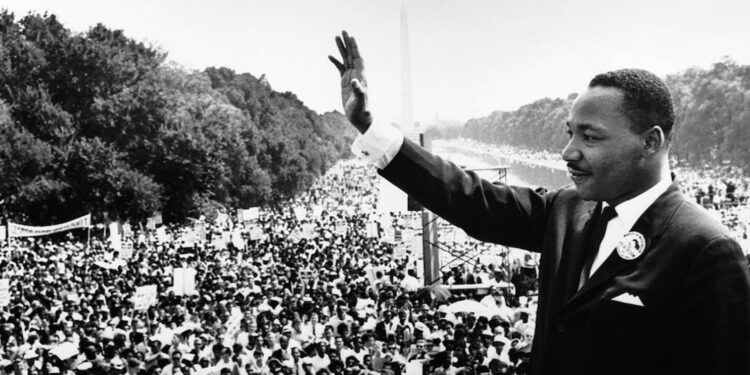Martin Luther King, Jr. Day, observed annually on the third Monday of January, stands as a powerful tribute to one of America’s most influential civil rights leaders and his enduring legacy of nonviolent activism for racial equality and social justice. The holiday celebrates both King’s birthday (January 15, 1929) and his monumental contributions to American society.
Established as a federal holiday in 1983 through legislation signed by President Ronald Reagan, and first observed in 1986, the day serves as more than just a commemoration – it embodies a call to action for continuing the work of civil rights and equality. King’s vision of a society where people would be judged not “by the color of their skin but by the content of their character” remains a compelling blueprint for social progress.
During his leadership of the civil rights movement in the 1950s and 1960s, Dr. King advocated for peaceful resistance and civil disobedience as means to combat racial segregation and discrimination. His efforts were instrumental in the passage of landmark legislation including the Civil Rights Act of 1964 and the Voting Rights Act of 1965. The reverberations of his work continue to influence contemporary movements for social justice and equality.
Many Americans observe MLK Day through service projects and volunteer work, embracing the holiday’s designation as a “day on, not a day off.” Communities across the nation organize activities such as food drives, neighbourhood clean-ups, and educational programs, reflecting King’s belief in the power of collective action to create positive change.
Educational institutions play a crucial role in the observance, using the day to teach students about the civil rights movement, King’s philosophy of nonviolence, and the ongoing struggle for equality. Many schools and organizations host special programs featuring readings of King’s speeches, particularly his famous “I Have a Dream” address delivered at the 1963 March on Washington.
The holiday also serves as a time for reflection on the progress made toward racial equality and the work that remains to be done. It prompts discussions about contemporary civil rights issues, economic justice, and the importance of civic engagement in addressing societal challenges.
As we celebrate Martin Luther King, Jr. Day, we honor not just the man but the movement he led and the values he championed. His message of hope, unity, and peaceful resistance to injustice continues to resonate across generations and borders, inspiring people worldwide to work toward a more equitable and just society. The holiday stands as a reminder that individual action, coupled with collective effort, can drive meaningful social change and help realize King’s dream of a more inclusive America.
newshub



Recent Comments